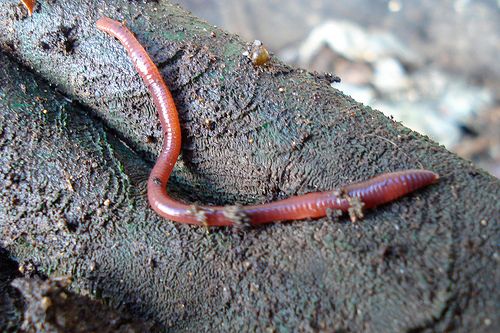Red Wiggler Worms available for sale - Lasting Waste Administration Option
Red Wiggler Worms Demystified: Unlocking the Keys of Vermiculture for Greener Living and Nutrient-Rich Soil
In the realm of lasting practices for enriching soil high quality and promoting eco-conscious living, red wiggler worms play an essential yet often forgotten function. These simple animals have the amazing capacity to transform natural waste right into nutrient-rich castings that work as a potent all-natural plant food. By delving into the world of vermiculture, one can reveal a myriad of advantages that prolong much past conventional composting methods. Recognizing the ins and outs of caring for these worms, maximizing their environment, and using their spreadings can result in a greener lifestyle and much healthier soil for plants to thrive.
The Role of Red Wiggler Worms
Red Wiggler worms play an important function in composting systems by efficiently damaging down organic matter into nutrient-rich spreadings. These starved eaters take in a range of natural products, such as kitchen area scraps, backyard waste, and paper items. As they feed, the worms' digestive system processes damage down the natural issue into a penalty, dark, and nutrient-dense product known as worm spreadings or vermicompost.
The spreadings produced by Red Wiggler worms are extremely beneficial for dirt wellness and plant growth. They are abundant in vital nutrients like potassium, nitrogen, and phosphorus, which are crucial for sustaining healthy plant development. In addition, worm spreadings have useful microorganisms and enzymes that aid improve dirt structure, boost water retention, and enhance nutrient uptake by plants.
Benefits of Vermicomposting

In addition, vermicompost, the nutrient-rich final product of vermicomposting, functions as a superb organic plant food and soil conditioner. It enhances dirt framework, improves dirt oygenation, and boosts soil moisture retention. These residential or commercial properties add to much healthier plants with more powerful origin systems and far better resistance to illness and bugs. Vermicompost additionally enriches the soil with important nutrients like nitrogen, potassium, and phosphorus, advertising plant growth and overall soil fertility.
Furthermore, vermicomposting assistances lasting horticulture practices by offering a natural and chemical-free choice to artificial plant foods. Red Wiggler Worms. This eco-friendly approach not only enhances the dirt but likewise helps minimize reliance on damaging chemicals, promoting a greener and much more lasting way of horticulture
Setting Up a Worm Container
When developing a worm bin for vermicomposting, appropriate arrangement is vital to guarantee the success of the composting process. The very first step in establishing up a worm bin is picking an ideal container.
After including the bed linen, introduce the red wiggler worms to the bin. The worms must then be provided with food scraps such as fruit and vegetable peels, coffee premises, and eggshells.
Regularly check the dampness levels and temperature level in the worm bin to make sure optimal conditions for the worms. With appropriate arrangement and upkeep, the worm bin will properly convert organic waste right into nutrient-rich garden compost for your plants and yard.
Harvesting Worm Spreadings
To successfully collect nutrient-rich worm castings from your vermicomposting system, a systematic harvesting approach is her response necessary. When it comes time to collect the worm spreadings, there are a couple of essential actions to comply with to make sure a successful process. First of all, stop adding fresh food scraps to one side of the worm container for a couple of weeks prior to gathering. This motivates the worms to migrate to the side with fresh bed linens and food, making it less complicated to dig the spreadings from the opposite.

Troubleshooting Common Issues
Identifying and addressing common obstacles that may arise throughout the vermicomposting process is essential for maintaining a healthy and effective worm bin. Adding excess food scraps can lead to a build-up of dampness and acidity in the worm container, potentially harming the worms. Another problem is unpleasant smells emanating from the worm container.
Additionally, if the worm population is decreasing or the worms show up unhealthy, maybe because of ecological stress factors such as severe temperatures or pH levels. Monitoring these variables and making necessary changes is essential for the well-being of the worms. By fixing these typical concerns promptly, vermicomposters can make certain a smooth and effective vermicomposting process while maintaining a check thriving worm population.

Conclusion
To conclude, red wiggler worms play a crucial role in vermiculture by breaking down raw material right into nutrient-rich dirt. The benefits of vermiculture include greener living and enhanced dirt quality. Establishing a worm container is vital for successful vermiculture, and harvesting worm spreadings gives valuable garden compost for gardening. By comprehending and troubleshooting common concerns, individuals can open the tricks anchor of vermiculture for lasting living and much healthier soil.
As they feed, the worms' digestion procedures break down the natural issue into a fine, dark, and nutrient-dense material recognized as worm castings or vermicompost.
The spreadings produced by Red Wiggler worms are extremely helpful for soil health and plant growth. Including excess food scraps can lead to a buildup of dampness and level of acidity in the worm container, possibly damaging the worms.In addition, if the worm population is declining or the worms show up unhealthy, it could be due to environmental stress factors such as extreme temperatures or pH levels. Setting up a worm container is vital for successful vermiculture, and collecting worm castings offers useful garden compost for gardening.